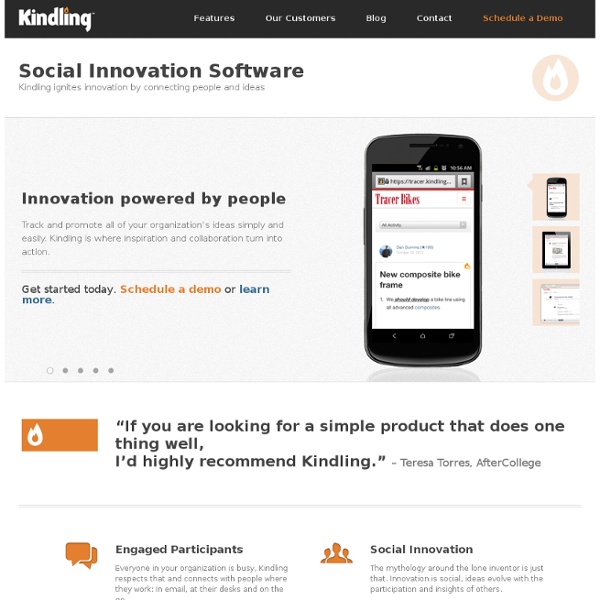



Crowdbrite Skitch Trek aandacht Snelle focus op wat belangrijk is met gebruik van annotaties en markeringen. Zeg het met minder woorden Maak jouw punt met vormen, pijlen en snelle tekeningen. Verplaats projecten naar voren Gebruik Skitch op je pc, tablet en telefoon om feedback te geven en ideeën te delen. Olive: Conquer Stress. Be Stellar. Your personal guide to conquering stress in a simple bracelet. Stress can be conquered Stress can keep us from being our best. It impacts the way we think, feel, and interact with the world. We all struggle with it because it can be hard to understand, hard to notice, and hard to find solutions that work for every individual. That's why Olive is putting science and technology to work for you. Olive sits comfortably and discreetly on your wrist and monitors stress-related data in the background. Tracks physical indicators of stress based on changes in heart rate, reactions in your skin, and trends in skin temperatureAnalyzes habits that contribute to stress like your physical activity, sleep, and exposure to lightTalks with your smartphone to understand your lifestyle through your calendar, your location, and other available data Olive is your personal guide to stress. Stress is something that is intimate, but we want you to be proud of the fact that you’re conquering it. Sensor technology
Anaconda — Continuum documentation Installation Instructions Linux Install These instructions explain how to install Anaconda on a Linux system. After downloading the Anaconda installer, run the following command from a terminal: $ bash Anaconda-2.x.x-Linux-x86[_64].sh After accepting the license terms, you will be asked to specify the install location (which defaults to ~/anaconda). Note: You do NOT need root privileges to install Anaconda, if you select a user writable install location, such as ~/anaconda.* After the self extraction is finished, you should add the anaconda binary directory to your PATH environment variable. As all of Anaconda is contained in a single directory, uninstalling Anaconda is easy (you simply remove the entire install location directory). Mac Install These instructions, explain how to install Anaconda on a 64-bit Mac OS X (10.5 and higher) system. After downloading the Anaconda installer, run the following command from a terminal, replacing 2.x.x with your version number: Windows Install Support
Hubble Tourist.js Tourist.js is a simple library for creating guided tours through your app. It's better suited to complex, single-page apps than websites. Our main requirement was the ability to control the interface for each step. For example, a step might need to open a window or menu, or wait for the user to complete a task. Installation The code is available via bower install tourist or on github. Get started quickly Specify steps explaining elements to point at and what to say. Example Hey look at me! No look at me! Powerful Tourist was designed for complex apps rather than websites. control the interface for each step move to the next step only after the user completes a specific task Just use the setup() and teardown() functions in your step options. Dependencies Tourist depends on Backbone and jQuery. Tourist comes with the ability to use either Bootstrap popovers (default) or QTip2 tips, so you'll need either Bootstrap 3 CSS (only the CSS is necessary!)
WhatFont Tool - The easiest way to inspect fonts in webpages « Chengyin Liu ← Back to Chengyin's main page What is the easiest way to find out the fonts used in a webpage? Firebug or Webkit Inspector? Hence I wrote WhatFont, with which you can easily get font information about the text you are hovering on. To embrace the new web font era, WhatFont also detects services used for serving the font. Font name? Want to know more? Want the font? Want to share your discovery? ← Drag this to your bookmark bar to install On any webpage, click your WhatFont bookmark to use the tool. Full support: Firefox 3.6+, Chrome 9+, Safari 4+, Internet Explorer 9. Limited support: Internet Explorer 8. ↑Install the extension from Chrome Web Store. On any webpage, click WhatFont button to use the tool. Download Now After downloading, open the extension file to install. The quick brown fox jumps over the lazy dog. Email chengyin.liu@gmail.com Twitter @chengyinliu The tool should auto-update itself. Ver 1.6.1 Added color detection for text. Hosted on Github
TrailRunner - Mac OS X route planning and journaling for iPhone, Nike+ SportBand, Garmin ForeRunner GPS Home 30+ Mac Shortcuts and Hidden Features Want to your boost productivity of your Mac ? Shortcuts are nice way to work fast then hovering mouse everywhere. With such a beautiful eye friendly interface, Mac is much more advanced system which gives you abilities to process up your tasks with the help of keyboard using shortcut keys. And pressing buttons and combination of keys is faster than taking your cursor to the button which can be under the finder, or in the menu that is the sub-menu in the finder. I have gathered up some hidden features and shortcuts your are probably unaware of. Finder Shortcuts ⌘ + R – Reveals the selected item in a new Finder window.⌘ + I – Info window shows for the selected item.⌘ + D – selects the Desktop folder as a destination⌘ + ⌥ + L – selects ~/Download folder as a destination⌘ + F – cursor jumps to the Find text field⌘ + . – Cancels and closes the dialog window⌘ + ⇧ + > – Shows/Hides hidden files in the dialog Screenshot Shortcuts Text Field Shortcuts Use these shortcuts in the text editors.
KustomNote - Custom note taking templates and forms for Evernote